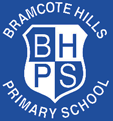The BHPS MFL Curriculum
Intent:
At BHPS we provide children with a challenging and engaging MFL curriculum by offering Spanish. By the end of Key Stage 2, we want our children to be in line with their peers nationally by providing experiences which encourage a love for learning a new language but equally have the opportunity to use transferable language skills. Children will be able to understand simple spoken and written language; be able to speak aloud and take part in short conversations and have the ability to write simple sentences. They will have an understanding of different cultures, have knowledge of how languages work and how to learn them.
Our Spanish MFL curriculum is designed to allow children time to think, discuss, practise, explore and embed. This allows time for teaching, practice and repetition – both in a year group and across both key stages. Curriculum coverage is mapped out carefully from Year 3 to Year 6, which allows some key concepts to be developed at a deeper level of learning, understanding and mastery. Fundamental knowledge and skills are covered at key points throughout the primary phase and repeated to allow pupils to build on what has been taught before. Where year groups are covering an area in more depth, this will be highlighted in green on the Curriculum Depth Map below. Lessons will be planned and a knowledge organiser provided for pupils, which outlines the area to be taught, where the new knowledge and skills fit in with their prior learning, any sticky knowledge they need to understand and key vocabulary they need to learn.
Implementation:
Our KS2 scheme of work is designed to fulfil National Curriculum requirements, providing learning experiences that engage, enthuse and motivate all of our learners. To aid progression within our medium term planning, we draw on the non-statutory KS2 languages framework guidance. In line with these guidelines, all pupils will have a Spanish session once a week. This time allocation is made up of a combination of dedicated language lessons, teaching language through other subject areas and using language for real purposes in daily classroom routines.
The languages curriculum is aligned wherever possible is cross curricular in its approach, to enhance the cohesion of learning experiences for our pupils. In the early stages of language learning, pupils engage in a lot of learning to train the ear, to tune into and learn how to produce the sounds of the language, through the teaching and learning of phonics and phonics-related activities. Joining in with songs, rhymes, stories and poems all serve to reinforce the sound-writing patterns. Pupils then begin to develop, from the earliest stages in Y3, the ability to form simple sentences of their own, with relation to topics of close, personal interest, such as self, family and pets. As learning develops, pupils are given more and more opportunities to engage with Spanish culture, learning about places, festivals and other aspects of daily life in countries where the language is spoken. As they develop confidence in writing from memory, building up over the course of KS2, to having the ability to write a short paragraph - with information on two to three topics. A wide variety of resources are used, including ICT, and learning activities, including games, information-finding (research), pattern-finding, and quizzes to stimulate interest and general literacy and other learning skills.
Impact:
Impact is evidenced through:
- Pupils’ are able to express their ideas and thoughts in another language
- Pupils’ are able to explore the relationship between language and identity.
- Retaining key knowledge
- Demonstrating that they know more all the time
- Low-stakes tests/quizzes
- Pupils will be able to express their knowledge and understanding
- The use and outcomes of the varied activities
- A high-quality languages education should foster pupils’ curiosity and deepen their understanding of the world.
- Language teaching should provide the foundation for learning further languages, equipping pupils to study and work in other countries
